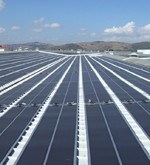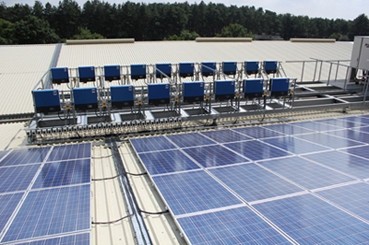Government cuts subsidies for green energy schemes

Under the UK FIT scheme, firms gain subsidies for every kilowatt of electricity they generate or export to the Grid.
The government completed its FIT review last month, hugely cutting subsidies for all firms generating more than 250kW through solar power, or photovoltaic energy. This means smaller manufacturers still benefit, but larger firms, which can incur annual energy bills of up to six figures, would lose out.
This was the only major change resulting from the review, but it was a "big hit", according to Claire Whitney, solicitor in law firm Eversheds' renewable energy department. Before the change, the UK had one of the most attractive FIT schemes in Europe.
Changes take effect from August 1, although higher subsidies will still apply for large solar projects already under construction. Processors aiming to use solar power to cut bills would have to reassess their options. "Some clients are still looking to go down the solar route, but there could be more beneficial technologies out there for which they can benefit under FITs, depending on the amount of energy they consume," said Whitney.
Andrew Kuyk, director of sustainability and competitiveness at the Food and Drink Federation, said volatile energy prices hampered decisions over green technology to invest in. "If you don't know what prices are going to do, it's hard to calculate the business case."
The complexity of different green energy technologies and benefit schemes, such as FITs and the Carbon Reduction Commitment, was also confusing companies, said Kuyk. And the UK had to fight to receive competitive energy supply and payment terms in comparison to other European countries.
"Overall, we want clarity, consistency and predictability in terms of energy supply and we want it as harmonised as possible in the EU," Kuyk said.
Meanwhile, energy costs look set to rise further. Paul Tripp, md of branded malt loaf manufacturer Soreen, said: "We are contracted out but have incurred increases year-on-year of 6%. Our view of the long range forecasts are that unfortunately electricity prices will increase further."
One firm said it had fixed terms for the current financial year, but next year would be worse. "In the medium to longer term, it will have an impact on our business."
Brian Young, director general of the British Frozen Food Federation (BFFF), said: "Energy is becoming a more significant cost for the industry, so the amount of shopping around and research [to get the best prices] has become ever greater." Trade bodies such as the BFFF could use members' combined buying power to get better deals with energy suppliers, he added.
















